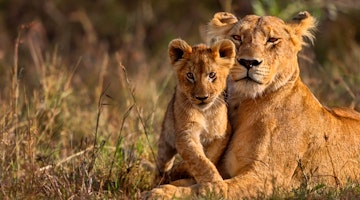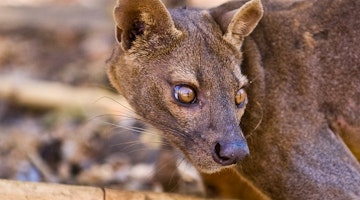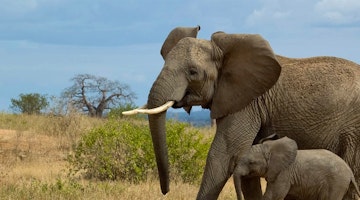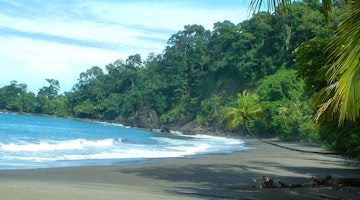Travel Guide
Language
Malagasy is the first language, French is the business language and the use of English is increasing in many hotels.
Electricity
220 V European 2-prong plugs
Remember to take an adapter. Even small lodges will have a generator and you will be able to charge your phone and camera batteries. Note that at some remote lodges and camps, electricity may not be supplied 24/7.
Mobile phone coverage and WiFi
Arrange international roaming for your mobile phone before you leave and remember to take along a charger. There is reception in urban areas and increasingly, in remote rural locations. Our guides know where to drive to in order to get reception near the parks when needed. Increasingly hotels and lodges offer WiFi services, usually in their central reception areas only.
Visa requirements:
You can buy a 30 day single entry tourist visa on arrival at the airport in cash using Euros (18 euros) or US$.
We do NOT advise trying to obtain a Madagascar visa online.
Baggage Allowance
Free baggage allowance on Air Madagascar/Tsaradia domestic flights is:
Economy Class 20kgs (44 lbs) + 1 item hand luggage (5kg).
Always organise your packing so that you have essential items for the first 3 or 4 days in your hand luggage, as it sometimes go astray en route and may only arrive in Madagascar a few days later.
Currency
The local currency is the Ariary. Ariary notes have a metallic strip on the right hand side. While there are exchange facilities in the main cities during the working week, service may be restricted to certain hours. We advise against taking travellers cheques as this is also a lengthy process.
Ask for some small denomination notes – Ar 100 and 200 – for tips and local purchases. Remember that no more than 400,000 Ariary may be taken out of Madagascar.
Credit Cards
Visa is increasingly useful in Madagascar, but do note that it might not be accepted in certain shops or at some of the smaller, more remote lodges. Where cards are accepted, the fee is often between 3.5 - 5%. Do not rely on your credit card for obtaining local currency from the bank at the airport, but cards can sometimes be useful for drawing cash from banks in the main towns and at Ivato airport. Visa is the most widely accepted card. Avoid travellers cheques.
Spending money
We always encourage visitors to buy local goods as gifts to take home. There are many fine crafts people in Madagascar producing inlaid wooden objects, basket work, paper goods, objects painted with scenes of rural life, embroidered table linen and clothing, and so on. This helps to spread wealth to some of the poorest people who need it most.
Depending on your tastes, a lavish meal in the capital city can costs up to £25 per person, a bottle of local wine about £5 and a bottle of mineral water about £1.50 in a bar and 80p in a shop. A silk lamba costs about £35.
Don’t forget that in the airport departure lounge, you will need hard currency – US dollars or Euros.
Health requirements
There are no compulsory health requirements at present, unless you are arriving from certain East African countries, when a yellow fever certificate is required. Note that syphilis is widespread in Madagascar.
A reasonable level of fitness is a requirement for the bulk of Madagascar's national parks, including those with very high numbers of visitors such as Isalo, Ranomafana and Mantadia. To visit those you must be able to walk for at least 3 hours and you need to be able to negotiate some arduous terrain, especially at Ranomafana where slopes are steep.
Malaria zone
Madagascar is in a malaria zone so precautions, including anti-malaria tablets and insect repellent, are imperative. We advise visitors to wear light, long sleeve shirts and trousers as avoiding mosquito bites makes good sense.
Cholera (April 2024 update):
*** April 2024 update: if you are entering Madagascar via a cholera-infected country you may be asked by airport authorities to take a three-day course of Doxycycline. This applies to passengers flying via Johannesburg, Addis Ababa and Nairobi. However, if you have proof of a cholera vaccination (vaccination certificate), you will be exempt from having to take the antibiotic.
Precautions
We recommend that visitors take a generous supply of wet wipes and use them after handling currency to reduce the risk of digestive upsets.
Never drink un-purified water. Bottled water is available almost everywhere. People planning a camping trip, or those conscious of re-cycling issues, should take water purification tablets. Avoid ice cream and local yoghurt. Peel all fruit before eating it.
The strong rays of the African sun can cause severe burns and sunstroke in just a few hours, so always take sensible precautions (eg light clothing that keeps you covered, a sun hat, sunglasses and sun block).
Your own doctor is the best source of precise and accurate information about health requirements and you should be guided by his/her advice.
You will need a passport that is valid for at least six months beyond your intended stay in Madagascar and must contain at least one completely blank page for the entry visa. Be careful to comply as failure to do so may result in the authorities denying you entry into the country.
British, other EU, American and Canadian passport-holders require a visa for entry to Madagascar. Visas may be issued by a Malagasy embassy or on arrival in Antananarivo, where they cost €18/ US$20
Wildlife sightings:
Please note that wildlife sightings/ nature can never be guaranteed. In a select few locations such as Berenty Reserve, wildlife is abundant and very well habituated. In most other locations, population densities are lower - or, they might fluctuate seasonally due to factors such as food availability and altitudinal migration movements.
Must haves
Take a good torch, spare batteries, camera, binoculars (large 8x40 are recommended), a sun-hat, sun block and insect repellent when travelling through wildlife areas. If visiting a rainforest, pack a waterproof jacket and comfortable shoes. If you are camping, take warm clothing, a towel and soap, antiseptic wipes and a roll of toilet paper. By the sea, old trainers or ‘jelly shoes’ will help to protect your feet.
Most urban centres of any size have shops, galleries and vibrant markets where a wide range of souvenirs may be purchased. Items like sunblock and underwear are difficult to obtain outside of Antananarivo, Tamatave and Nosy Be.
Malagasy cuisine has elements of both Indonesian and French culinary styles. Please do inform us of any special dietary requirements before you depart. Outside of the main centres, vegetarians may find the menu a little monotonous.
Tourists or vazaha are mostly exempt from adhering to fady, the complex system of taboos that operate in Madagascar. However, the degree of tolerance varies from place to place. Your guides can inform you of the local customs and beliefs.
Christianity and the cult of ancestors are the cornerstones of Malagasy culture. Tombs are believed to be the sacred dwellings of the ancestors.
When visiting sacred spots, ask your guide whether photography is permitted. Always ask people if you may photograph them. Sometimes they will agree in exchange for a gift or some money. Do not take photographs around government buildings or military bases.
People appreciate it if you greet them in Malagasy. Shaking hands is considered important. Dress in a modest manner to avoid causing offence. Remember that public demonstrations of affection are not considered acceptable.
A sense of adventure (and humour)!
Its important to note that the most meticulously planned itinerary might sometimes not work according to plan. Where an itinerary is based on Air Madagascar/ Madagascar Airways/Tsaradia's current domestic schedules, the airline reserves the right to change these without notice (and flight schedules were changed fairly often but recently there has been improvement). Changes may be forced upon us right until the last moment, but every effort will be made to keep the final itinerary as faithful as possible to this one proposed.
Accommodation:
We endeavour to use the best available accommodation in locations included in our itineraries. Please be aware from the outset that for the most part, lodges and hotels in Madagascar are not of the same standard as, for example, one might find in countries such as Tanzania, Kenya or South Africa. Power outages may occur occasionally, or electricity generators may be switched off for part of the night.
Guides and drivers:
We will always do our best to have the best possible guides allocated, but it is worth noting that guaranteeing certain guides by name cannot be done - this is mostly because recurring malaria can affect adults in the tropics. The quality of guiding, while usually highly praised (just read our reviews section!), is perhaps not quite on a par with that which you may have experienced in more established tourist destinations such as Kenya or South Africa. For overland journeys, we will always provide sturdy, comfortable 4-wheel drive transportation and experienced, private drivers.
Surplus Ariary (local currency) on your return:
Anyone returning from Madagascar with surplus Ariary (MGA, the local currency) can post this to exemplary charity Money for Madagascar at the following address: MFM, Langthwaite House, Lancaster, LA2 9EB, United Kingdom. Donations will be much appreciated.
Derek Schuurman
Travel Specialist
Travel Guides
Looking for inspiration?
You'll find expert travel guides, holiday ideas and insider tips now on the Rainbow blog

Top 5 First Time Safari Destinations

10 Strange Animals and Where to Go to See them


Salar De Uyuni - The World's Largest Salt Flat


Top five South Africa Safari lodges

Sustainable Tourism In Corcovado National Park, Costa Rica

Why Choose Us?
Passionate travel experts
- We've been leading wildlife travel since our first South Africa tours over 25 years ago
- Our Travel Specialists have lived in their specialist area for years
- We work with local guides to immerse you deeper in our diverse range of experiences
Personal & tailor-made
- You'll speak to your own expert who'll share their first-hand knowledge
- We'll make your itinerary seamless with 24/7 emergency contact available
- Your Travel Specialist will listen to ensure you have the best chance of seeing the wildlife you love
Responsible by nature
- We take care to actively contribute to the conservation of environments we visit
- For select countries, we make a charitable donation on your behalf when you make your booking
- We've partnered with conservation experts and NGOs to curate responsible tours
For the latest travel advice from the Foreign, Commonwealth and Development Office check www.gov.uk/travelaware

















